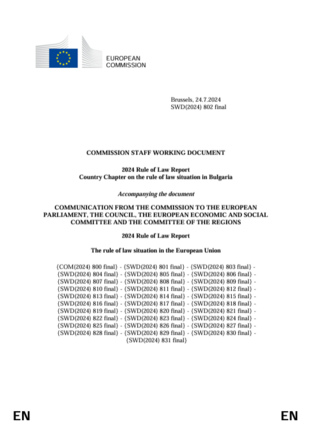
The Bulgarian media landscape is regulated by key legislations like the Radio and Television Act and the Access to Public Information Act. The institutional framework comprises the Council for Electronic Media (CEM) and the National Council for Journalistic Ethics. The CEM faces political pressure and monetary constraints, so its independence remains at risk.
Registers for media ownership exist, but enforcement of disclosure obligations remains weak. The public register is difficult to access and self declaration by media houses is often questionable.
Progress related to transparency in state advertising is also visible, following the 2023 Rule of Law Report’s recommendation. The Public Procurement Act was amended in October 2023 which requires disclosure of the funds paid to media service providers. Despite some advances, political and economic influences over media remain widespread. Commercial entities continue to significantly impact editorial content. Bulgaria lacks any specific laws against media concentration, and this has serious implications on media freedom and plurality.
The CEMhas been unable to appoint a new Director General for the Bulgarian National Television (BNT) since 2022. The Media Pluralism Monitor assigns a high risk score of 94% regarding the independence of public service media. Though some progress is visible regarding settlement of high profile cases, SLAPPs (Strategic Lawsuits Against Public Participation) remain prevalent. Apart from legal threats, journalists face physical harassment and online threats. There have been reports of physical assaults.
Tags: Bulgaria Media freedom Rule of LawThe content of this article can be used according to the terms of Creative Commons: Attribution-NonCommercial 4.0 International (CC BY-NC 4.0) . To do so use the the wording "this article was originally published on the Resource Centre on Media Freedom in Europe" including a direct active link to the original article page.

